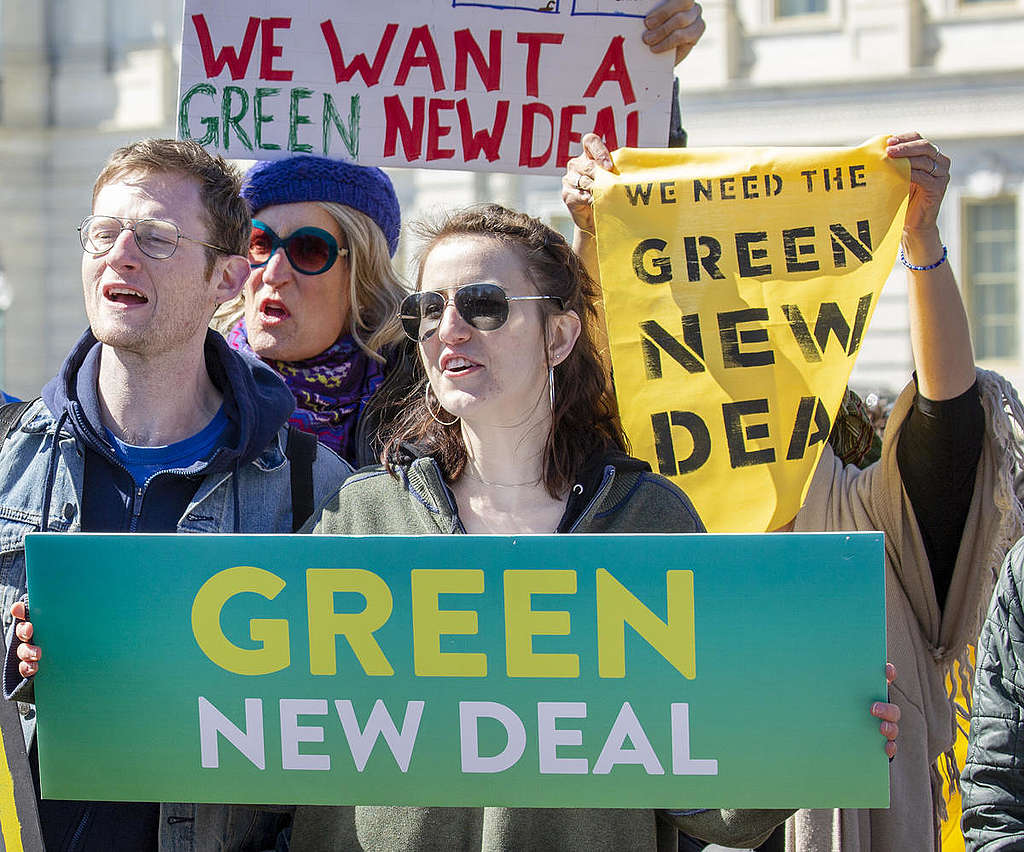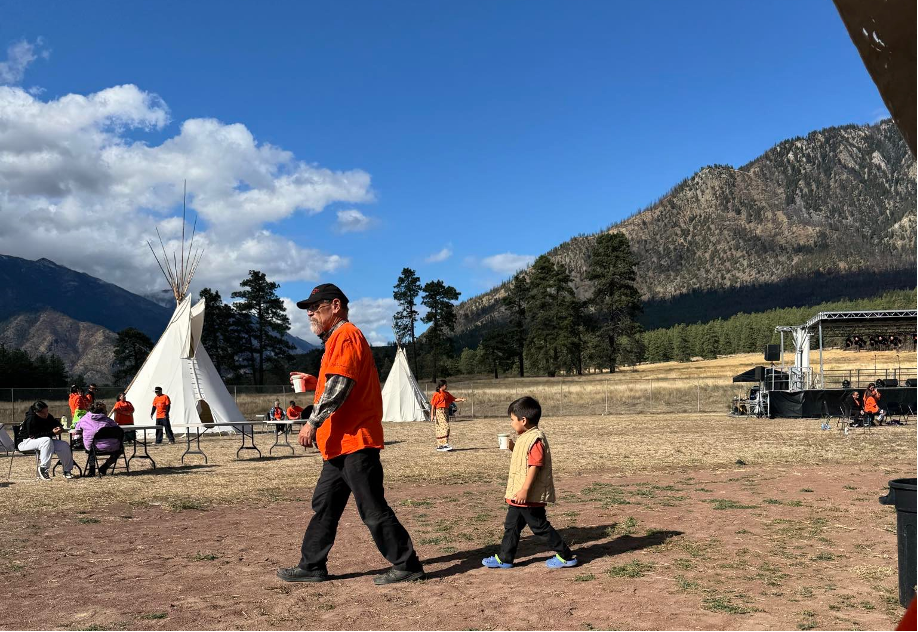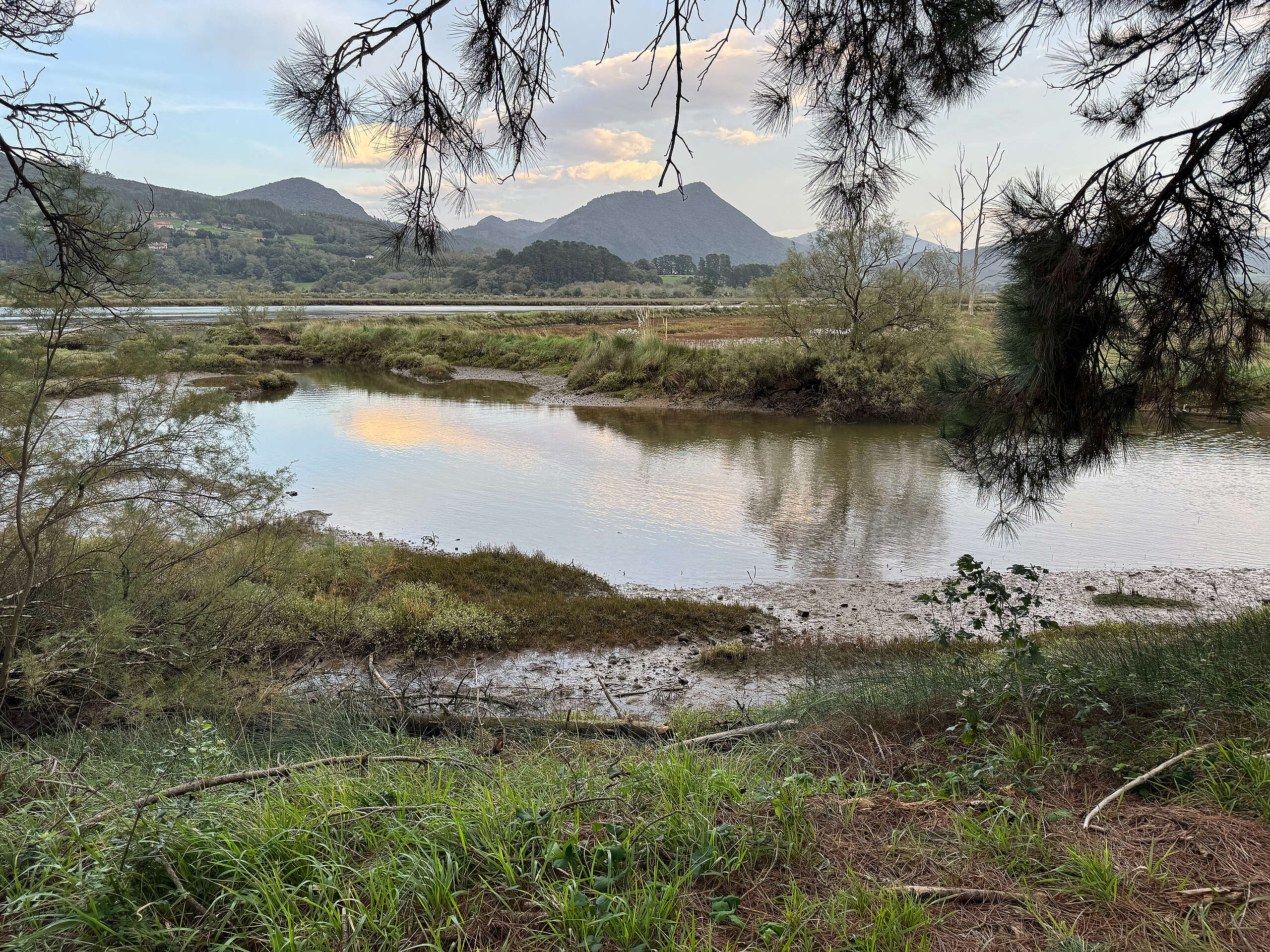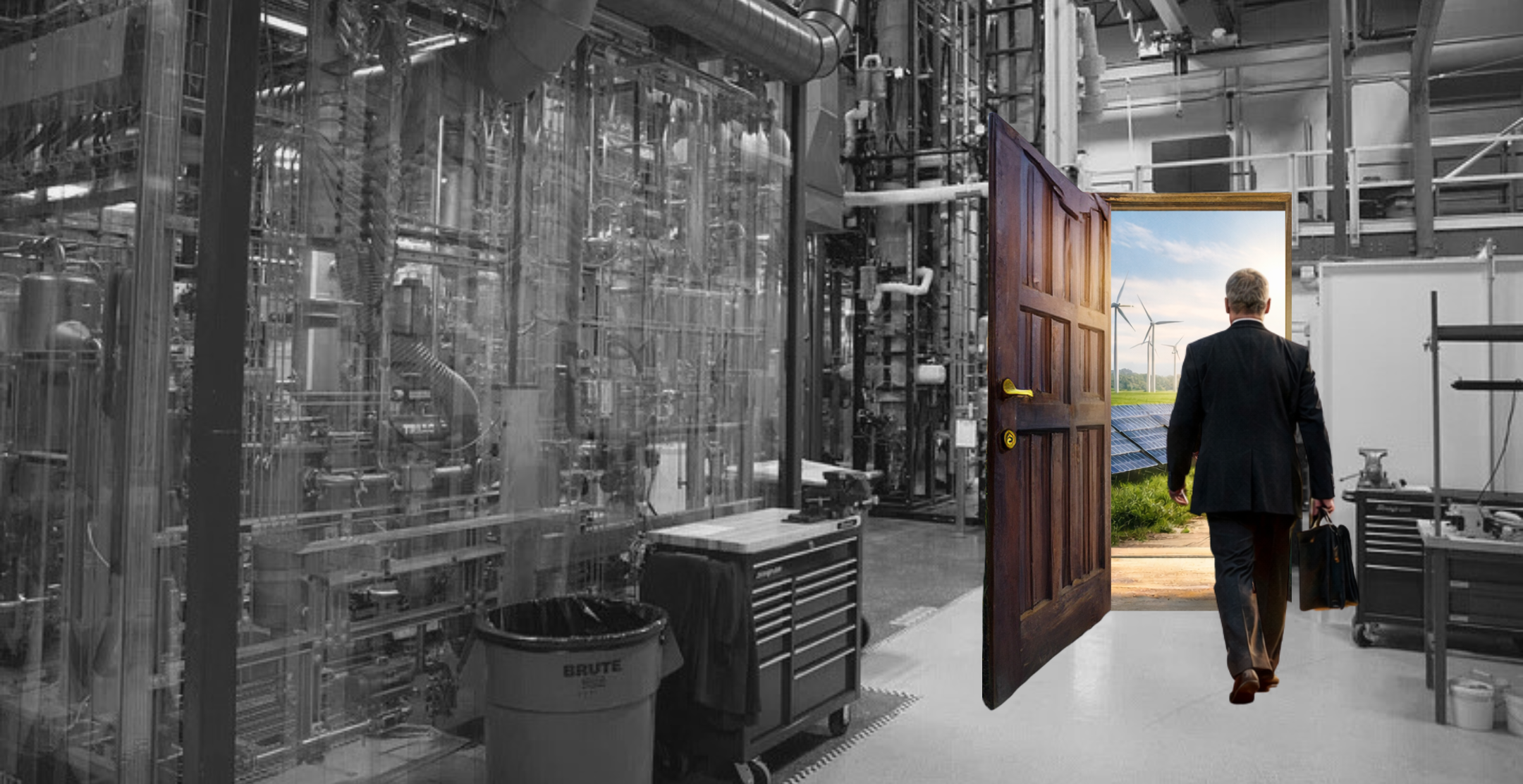Last month over 150 town halls were held across the country to discuss what a Green New Deal to address the demands of the climate crisis and justice should look like. Here’s some of what we heard:
What did we hear at The Pact for a Green New Deal Town Halls?
Historic floods and wildfires. The MMIWG final report linking resource extraction and violence against Indigenous women, girls, and two-spirit people. Growing economic inequality. Our government’s failure to live up to the demands of the Truth and Reconciliation committee or to fully implement the United Nations Declaration on the Rights of Indigenous Peoples. This moment of systemic crisis calls for systemic change. That’s why over 100 groups have come together in 2019 to launch The Pact for a Green New Deal.
The Pact for a Green New Deal is a coalition calling for a far-reaching plan to cut emissions in half in 11 years, in line with Indigenous knowledge and climate science; create more than one million good jobs; and build inclusive communities in the process. Its bold, justice-based vision is galvanizing thousands of people by recognizing, and working to respond to, the multiple crises we face.
Since The Pact launched on May 6, 2019, organizations in the coalition have set off with the goal of listening to people from coast to coast to coast in the ambitious project of defining what a Green New Deal looks like for their community.
In less than a month, volunteers organized an astounding 150+ town halls, taking place in every single province and territory, to build alignment towards a set of shared principles for a Green New Deal.
Of these 150+ events, about half were held in large communities (over 100,000 people), and half in small communities (under 30,000 people). The organizers we heard from hosted town halls ranging in size from four people, in Iqaluit, to over 300 in Edmonton. All in all, more than 7,000 people joined Green New Deal town halls in their communities — representing environmental groups, labour unions, faith groups, political parties, city councils, community and neighbourhood associations, Indigenous organizations, women’s organizations, the Fight for $15 and Fairness, student unions, local media, and more.
We worked with analysts to pull themes from the town hall conversations that took place: people gathering in grief, in rage, and in hope to share what they think the Green New Deal must include, and what it must put an end to. What follows is a summary of some of those themes; it is not a complete analysis or completed report. There is much work still to be done to bring in those who did not attend town halls, to allow time to hear from other groups, and to make sure voices marginalized by the status quo are made central in the process.
Red Lines and Green Lines
Methodology
The town hall process was not about coming to complete consensus on specific policies or finding the perfect wording, but rather creating an opportunity for thousands of people to contribute their ideas for what a Green New Deal should look like, to identify commonalities, and to start developing specific proposals.
Participants were asked to discuss their red lines and green lines: the things that absolutely should not be in a Green New Deal for Canada, and the things that people, groups, communities and institutions want — and in some cases, need — to see in a Green New Deal in order to be on board.
Participants shared an incredible 8900 red lines and green lines. There were almost three times as many green lines as red lines, suggesting that participants are eager to focus on a hopeful and positive vision of the future. Some clear themes emerged from the responses, as outlined in the following sections.
Here’s some of what we heard:
Green Lines
The town hall responses were sorted into the following twelve Green Line categories: Economy and Government, Green Infrastructure, Nature, Agriculture, Social Justice, Democracy, Plastics, Climate Science, Decent Work, Indigenous Reconciliation, Climate Debt, and Rights. Of these categories, the ones that occurred most frequently were Economy and Government, Green Infrastructure, Social Justice, and Indigenous Sovereignty. It is clear that systemic change and radical shifts are needed to transform the systems and institutions that perpetuate inequality, racism, xenophobia, and ongoing colonial violence.
Indigenous Sovereignty
A Green New Deal must include the full implementation of the United Nations Declaration on the Rights of Indigenous Peoples (UNDRIP), Free, Prior and Informed Consent (FPIC), and the 94 Calls to Action of the Truth and Reconciliation Commission. Participants highlighted the importance of Indigenous knowledge, and respecting Indigenous title and relationship to the land. Decolonization must go hand in hand with a Green New Deal.
Specific recommendations included:
• Full recognition of Indigenous title and rights.
• Fully implementing the United Nations Declaration on the Rights of Indigenous Peoples, and the right to Free, Prior and Informed Consent.
• Fully implementing the 94 Calls to Action of the Truth and Reconciliation Commission.
• Fully implementing the Calls for Justice in the Final Report of the National Inquiry into Missing and Murdered Indigenous Women and Girls.
Economy and Government
Time and time again, we heard that transforming the economy is at the heart of solutions to environmental degradation and climate change. Town hall participants are ready for governments to lay the groundwork for this change in a wide range of ways — from carbon taxes, to subsidies for green initiatives, to public investment in renewable energy and infrastructure and fundamentally changing the priorities of the economic system itself.
Specific recommendations included:
• Setting a legally binding climate target for Canada in line with the science of keeping global warming to 1.5 degrees Celsius.
• Creating millions of good, high-wage jobs through a green jobs plan, ensuring fossil fuel industry workers and directly affected community members are guaranteed good, dignified work with the training and support needed to succeed.
• Increasing unionization and implementing workers’ rights, including at least a $15 minimum wage, pay equity, paid emergency leave, job security, protections for migrant workers, and the right to organize and unionize
• Personal and public subsidies for greener technology, including affordable energy-efficient housing, and transportation.
Green Infrastructure
In talking about infrastructure for an equitable and sustainable society, participants named renewable energy and public housing as areas in need of urgent action.
Specific recommendations included:
• Making massive public investments in the infrastructure to build a 100% renewable energy economy – including power generation, energy efficiency, public transportation, public housing, food justice, ecological and localized agriculture, and clean manufacturing.
• Ensuring sustainable, financially and physically accessible public transportation for everyone.
• Prioritizing and incentivizing local renewable energy creation especially with public service buildings.
Social Justice
The climate crisis cannot be addressed in isolation. Participants made connections between environmental issues and struggles that have long been led by communities on the frontlines of racism and an extractive economy: migrants, Indigenous communities, rural towns and villages, poor and working-class people, and disabled people. Participants also noted the rising leadership of youth whose lives and futures are at stake; and who must be included at decision-making tables.
Specific recommendations included:
• Promoting justice and equity by centring the communities marginalized by our current economy. This means addressing past and current harms to Indigenous peoples, Black communities, communities of colour, LGBTQ people, migrants, refugees, and undocumented people, rural communities, the poor, low-income workers, women, the elderly, people with disabilities, and youth.
• Ensuring free accessible post-secondary education for all.
• Full access to quality public services including healthcare, education, income security, housing, childcare, pharmacare, dental care, pensions, and more — for all.
• Status for all: Permanent resident status and family unity for all migrants and refugees here, and landed status on arrival for those that arrive in the future. No detentions, no deportations.
• Ensuring that Canada pays its fair share of the climate debt to countries in the Global South that have been impacted by practices and decisions in Canada, and ensuring that corporations based in Canada are not damaging the climate and environment elsewhere, contributing to conditions that force people to migrate (including wars, unjust mining, pollution, etc).
Red Lines
Town hall participants talked about putting a stop to the industries, institutions and practices that endanger our future and accelerate environmental destruction. Some of the Red Lines that came up discussed the fossil fuel industry, extraction and pollution, plastics, and a failing democracy.
Fossil Fuels
Town hall participants were heavily in support of not only preventing the future growth of the fossil industry — through actions like halting the construction and expansion of fossil fuel infrastructure, and ending government subsidies — but phasing it out on a timeline in line with the demands of Indigenous knowledge and science.
Specific recommendations:
• A plan to fully phase out the fossil fuel industry and move to 100% renewable energy by 2040 (at the latest) must be developed and implemented (including a plan to fully support workers throughout this process).
• Freezing the construction and/or approval of all new fossil fuel extraction and transportation projects — we cannot solve the problem if we make it worse at the same time.
• Fossil fuel subsidies from the federal or provincial government should be immediately eliminated and redirected to support the transition to a clean economy.
Protecting Biodiversity and Nature
Participants emphasized the importance of ending water extraction, water pollution, and other activities that jeopardize the health and sustainability of the environment.
Specific recommendations included:
• Enacting laws that grant personhood protections to our forests and bodies of water, and the creation of an environmental bill of rights.
• Stopping the dumping of waste (civic or industrial) into bodies of water.
• Ensuring greater protection for critical biodiversity and natural areas.
• Collectively ensuring the right of all people to clean air, clean water, healthy food, and a safe environment built on connection and community.
• Ensuring the protection of at least 30 percent of land and waters in Canada by 2030.
Plastics
Participants voiced support for stopping the production of single-use plastics, and advocated for the importance of ending our reliance on plastics as a society.
Specific recommendations included:
• Developing alternatives to plastic bags, straws and other single-use plastic items to address the problem of plastic waste, while maintaining the necessary access that these items often provide.
• Ending boil water advisories in Indigenous communities.
• Legislating the curtailment of excessive packaging.
Democracy
Participants made systemic links between current environmental issues and the necessity of ending corporate lobbying and transforming the democratic systems and institutions that have helped to create the multiple crises we face. Participants noted they would like to see “no more first past the post elections.”
Specific recommendations included:
• Honouring the promise of making Canada a Proportional Representation Democracy.
Next Steps:
The communities and organizations represented by people who attended town halls did reach beyond the “green bubble” that typically exists within mainstream environmental events and campaigns. That being said, there is much room for improvement in reaching out to the labour movement, social justice movements, Indigenous peoples, and those who are marginalized or who have been most impacted by the current and historical harms a Green New Deal must address.
Moving forward, consultation will continue and groups and organizations are encouraged to make submissions to this process. Many town halls have yet to be held, some groups are still preparing their own specific submissions; and so, the recommendations above should be taken as a living document that will continue to evolve and change as new voices enter the conversation.
Thank you for your words and participation. Let’s keep working to secure a Green New Deal for all.

Greenpeace Canada is part of a network of workers, artists, Indigenous leaders, scientists, youth, and people directly impacted by climate catastrophe — from cities and towns, businesses and communities, working beyond our political differences and in solidarity with Indigenous peoples — who want to ensure a safe world for our children and all generations after that.
Take action




Discussion
Thank you for all your work. Do you have Canadian Registered Charity Status? I don't know exactly how to phrase my question in regard to overhead expenses versus what is apportioned to helping animals more directly through feeding, relocation, treatment... I am considering donating in my will.
Hi Carlyne, thanks for your question and for considering Greenpeace in your will. Greenpeace Canada does not have charitable status and therefore cannot issue tax receipts. We are a non-profit, environmental, advocacy organization, totally dependent on individual donors to fund our campaigns. For more information or to learn how you can remember Greenpeace in your will, please contact Wanjiro at 416-597-8408 ext. 3027 or email: [email protected].